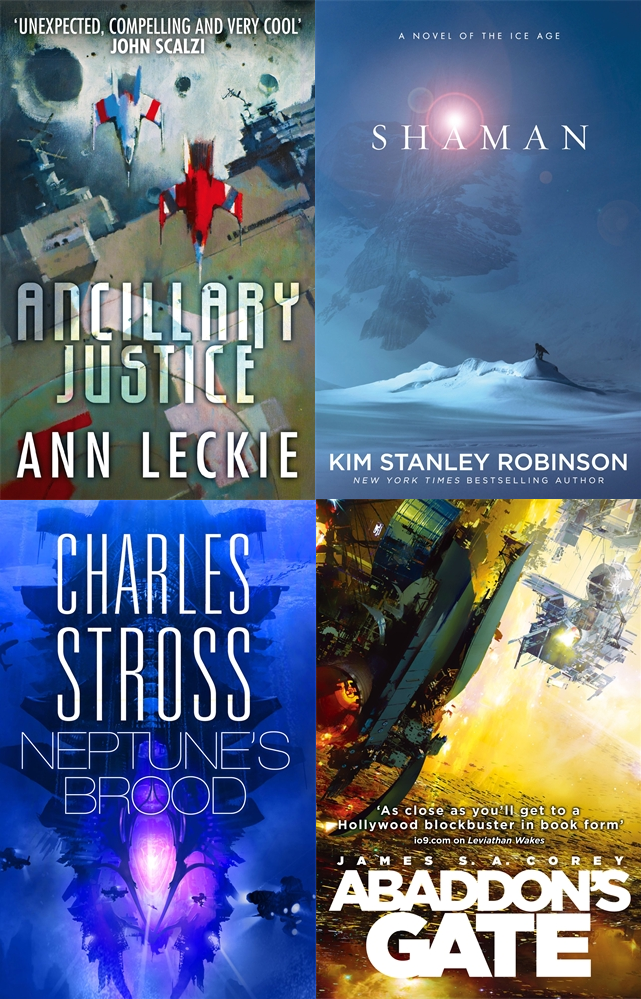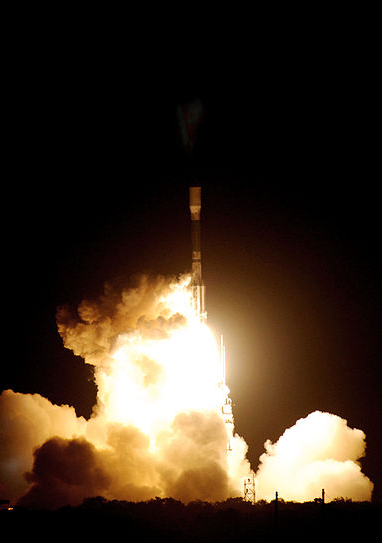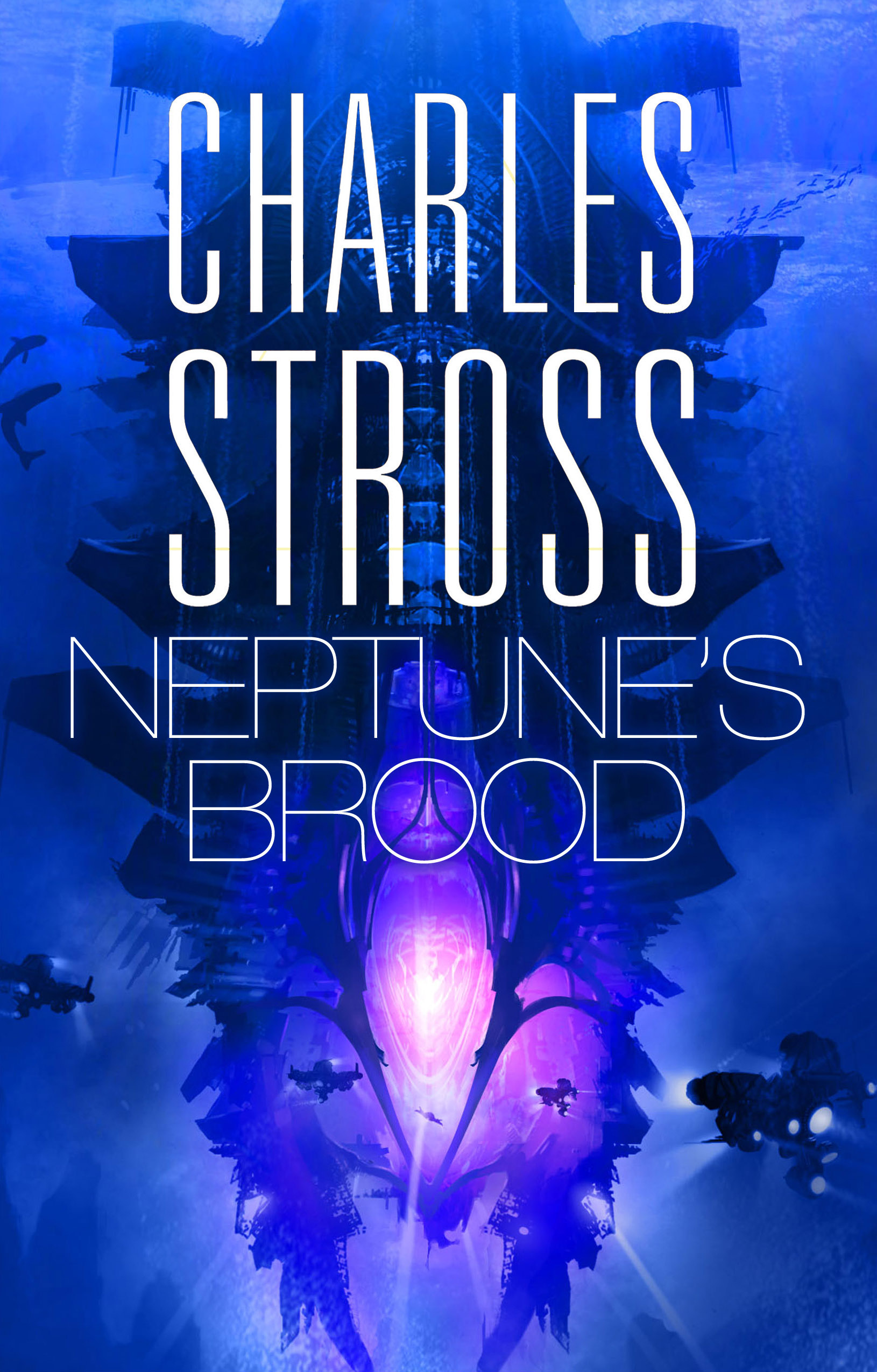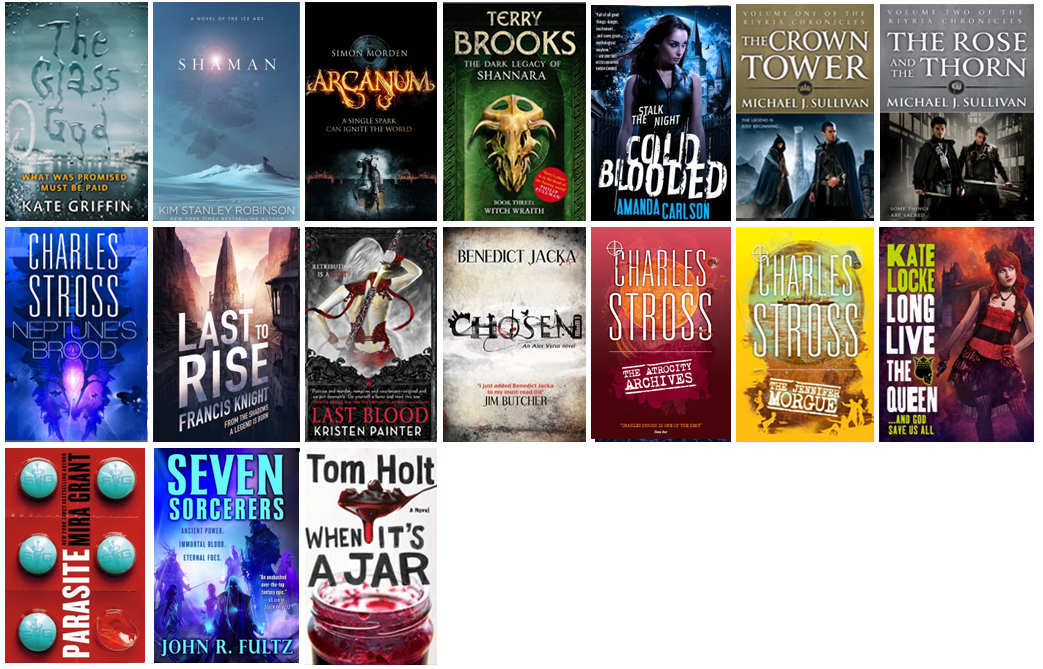From the Editor: Why I love Hugo Award-nominated NEPTUNE’S BROOD
Charlie Stross is a genius. If you ever get the chance to talk to him, you’ll find the ideas flying so thick and fast that you have to shift your brain into a higher gear just to keep up. You’ll also come away from the conversation with several new ideas about how you’re going to change the world and an armful of science fiction reading recommendations (for other writers’ work, not his own, because he’s just that kind of guy).
You know those moving walkways you get in airports? Where you’re walking down them, but the ground is also moving underneath your feet so that when you jump off at the end just walking at normal speed is like hitting a wall, smack, bang, and everything is moving at normal speed again, too slow?
Talking to Charlie, or reading his books, is like running down that walkway.
Now his books might not be for everyone – I understand some people (not us) prefer life in the slow lane, that some readers just can’t handle this much raw plot, character and awesome things happening, that they want something a bit more sedate. I imagine these are also the kind of people who prefer to cook without spices, who like bland TV and even blander books, because anything else might be a bit too much excitement.
But that’s why I’m so pleased by Charlie’s continued success at the Hugo awards. You love Charlie’s work, you’ve supported him at these awards again and again. This is an author who has broken records for the number of consecutive times one can be shortlisted for the Hugo Best Novel. His sixth shortlisting broke the record. NEPTUNE’S BROOD, in the 2014 awards, is his seventh.
NEPTUNE’S BROOD has mermaids, communist squid, roving gangs of accountant-privateers, zombies, spacefaring clergymembers, superhuman assassins, murder, backstabbing, family feuds and an incredibly intricate and utterly unprecedented financial con that could only occur in a universe with no faster-than-light travel.
If you’d told me before I edited NEPTUNE’S BROOD that something including all those elements would become one of my favourite novels, I might have laughed. How could one book fit so much in it? Now, I would tell you that ‘It is a truth universally acknowledged that every interstellar colony in search of good fortune must be in need of a banker.’
On top of the squid and the mermaids and the banking, NEPTUNE’S BROOD is also a genuinely moving story about a woman searching for her lost sister. The fact that that sister is actually a copy of her grown in a vat, and both characters are metahumans – the race artificially grown to replace humans when we proved too fragile for the trials of space travel – is by the by.
NEPTUNE’S BROOD is, according to io9, ‘the perfect book for our times’.
SFX call it ‘a thoroughly entertaining sci-fi mind-expander from one of the genre’s most reliable imaginations’, and SF legend Alastair Reynolds says ‘NEPTUNE’S BROOD is fast-paced and imaginative, with fascinating ideas about the economics of an interstellar society constrained by real physics. Above all else, though, it’s just terrific fun’.
But don’t listen to them. Read it yourself, and find out how a space opera with no faster-than-light travel can be the fastest, wildest ride of your life.
NEPTUNE’S BROOD, along with our other Hugo nominees, is currently available at a celebratory price of just £1.99 in the UK. Go, read, enjoy.





